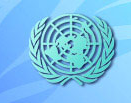Righting past wrongs: 2011, International Year for People of African Descent
 In application of its resolution 64/169, The UN General Assembly proclaimed the year 2011 as the International Year for People of African Descent. The intention of this initiative was « to ensure that people of African descent fully enjoy economic, cultural, social, civil and political rights ». However, the question of the reparation of colonial crimes is yet to be resolved. This issue has always been a matter of serious concern within the scientific community. In a 2007 publication of the Pennsylvania University Press (see below), several authors and researchers from all continents provide the state of the debate and remind once again the West to face up with its past.
In application of its resolution 64/169, The UN General Assembly proclaimed the year 2011 as the International Year for People of African Descent. The intention of this initiative was « to ensure that people of African descent fully enjoy economic, cultural, social, civil and political rights ». However, the question of the reparation of colonial crimes is yet to be resolved. This issue has always been a matter of serious concern within the scientific community. In a 2007 publication of the Pennsylvania University Press (see below), several authors and researchers from all continents provide the state of the debate and remind once again the West to face up with its past.
Mrs Mirjana Najcevska, Chairperson of the UN Working Group of Experts on People of African Descent hopes that » this is the year to recognise the role of people of African descent in global development and to discuss justice for current and past acts of discrimination that have led to the situation today. » Sharing the same opinion, Mr. Navi Pillay, UN High Commissioner for Human Rights, sees in this International Year « a unique opportunity to redouble our efforts to fight against racism, racial discrimination, xenophobia and related intolerance that affect people of African descent everywhere ». Additional information on the International Year for People of African Decent can be found at the following link: http://www.un.org/en/events/iypad2011/background.shtml
On the publication mentioned above:
« The Age of Apology: Facing Up to the Past », Mark Gibney, Rhoda E. Howard-Hassmann, Jean-Marc Coicaud and Niklaus Steiner (Ed.), University of Pennsylvania Press, 2007, 344p.
Book Description
In a turnabout of the cynical belief that might makes right, nations now see fit to issue apologies to peoples and countries they have wronged. We live in an age that seeks to establish political truth, perhaps best exemplified by the creation of truth commissions in societies seeking to emerge from dictatorial pasts. The most noteworthy result of these efforts has been the near-universal realization that a society will not be able successfully to pass into the future until it somehow deals with the horrors of its past.
A number of Western states and institutions have sought to come to terms with their relationships to non-Western states and peoples. Powerful actors and institutions are apologizing to the relatively powerless. What do these apologies mean? Are they an indication of a new international order, either politically or as they relate to international law? Or are these apologies fleeting and insignificant? In The Age of Apology twenty-two law, politics, and human rights scholars explore the legal, political, social, historical, moral, religious, and anthropological aspects of Western apologies in an attempt to answer these questions. Conversely, a nonapology might be as important to study, and several chapters discuss the absence or refusal of apology and how this might be interpreted.
About the Authors
Mark Gibney is Belk Distinguished Professor and Professor of Political Science at the University of North Carolina, Asheville. He is the author, coauthor, or coeditor of several books on international affairs and human rights, including Problems of Protection: The UNHCR and Refugees at the Beginning of the 21st Century and Five Uneasy Pieces: American Ethics in a Globalized World.
Rhoda E. Howard-Hassmann is Canada Research Chair in International Human Rights at Wilfrid Laurier University, Waterloo, Canada and a Fellow of the Royal Society of Canada. She is the author, coauthor, or coeditor of many books, including Economic Rights in Canada and the United States, also available from the University of Pennsylvania Press.
Jean-Marc Coicaud heads the United Nations University Office at the United Nations in New York. Niklaus Steiner is Director of the Center for Global Initiatives at the University of North Carolina, Chapel Hill.
Scholarships in Germany: PhD Positions in Transnational Studies Deutsch-afrikanische Kooperationsprojekte in der Infektiologie
Comments are currently closed.